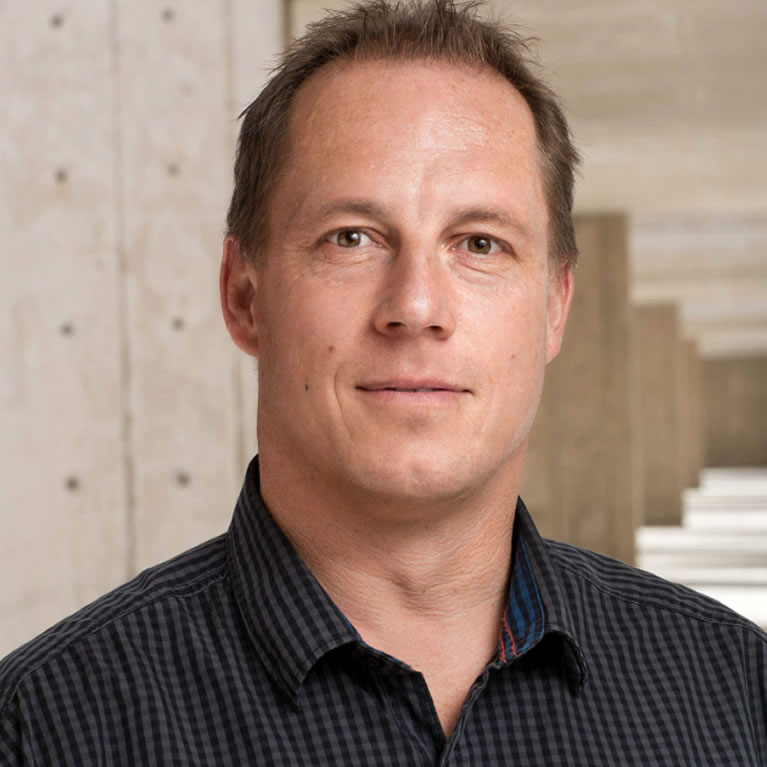Senior Vice President, Chief Science Officer
Professor
Molecular and Cell Biology Laboratory
Donald and Darlene Shiley Chair

LA JOLLA—The Salk Institute has named Jan Karlseder as its new senior vice president and chief science officer (CSO). Karlseder, a professor in Salk’s Molecular and Cell Biology Laboratory, director …
LA JOLLA—As we age, …
LA JOLLA—Just as plastic tips protect the ends of shoelaces and keep them from fraying when we tie them, molecular tips called telomeres protect the ends of chromosomes and keep …
LA JOLLA—A team of Salk Institute researchers led by President Rusty Gage has been awarded $19.2 million over eight years by the American Heart Association-Allen Initiative in Brain Health and …
LA JOLLA—Ever since researchers connected the shortening of telomeres—the protective structures on the ends of chromosomes—to aging and disease, the race has been on to understand the factors that govern …
LA JOLLA–Telomeres, specialized ends of our chromosomes that dictate how long cells can continue to duplicate themselves, have long been studied for their links to the aging process and cancer. …
LA JOLLA—The Salk Institute has received a $3 million gift from the Glenn Foundation for Medical Research to allow the Institute to continue conducting research to understand the biology of …
LA JOLLA, CA—Highly diverse cancers share one trait: the capacity for endless cell division. Unregulated growth is due in large part to the fact that tumor cells can rebuild protective …
LA JOLLA,CA—A team of scientists at the Salk Institute for Biological Studies has identified why disruption of a vital pathway in cell cycle control leads to the proliferation of cancer …
LA JOLLA, CA—For humans to grow and to replace and heal damaged tissues, the body’s cells must continually reproduce, a process known as “cell division,” by which one cell becomes …
LA JOLLA, CA—The Salk Institute is pleased to announce that professors E.J. Chichilnisky, Jan Karlseder, and Kuo-Fen Lee have each been selected as the recipient of an endowed chair to …
LA JOLLA, CA—Rapidly dividing cancer cells are skilled at patching up damage that would stop normal cells in their tracks, including wear and tear of telomeres, the protective caps at …
LA JOLLA, CA—The well-being of living cells requires specialized squads of proteins that maintain order. Degraders chew up worn-out proteins, recyclers wrap up damaged organelles, and-most importantly-DNA repair crews restitch …
LA JOLLA, CA—In stark contrast to normal cells, which only divide a finite number of times before they enter into a permanent state of growth arrest or simply die, cancer …
LA JOLLA, CA—After undergoing an extensive review process by Salk senior faculty, Non-Resident Fellows, and scientific leaders in their respective fields, Leanne Jones and Satchidananda Panda have been promoted to …
LA JOLLA, CA—Like cats, human cells have a finite number of lives-once they divide a certain number of times (thankfully, more than nine) they change shape, slow their pace, and …
La Jolla, CA – A team of scientists at the Salk Institute for Biological Studies has discovered that the roundworm C. elegans constructs the protective tips of its chromosomes – …
La Jolla, CA – Wielding a palette of chromosome paints, scientists at the Salk Institute for Biological Studies have taken a step closer to understanding the relationship between …
La Jolla, CA – When you dial 911 you expect rescuers to pull up at your front door, unload and get busy – not park the truck down …
La Jolla, CA – Researchers at the Salk Institute for Biological Studies discovered that cells co-opted the machinery that usually repairs broken strands of DNA to protect the integrity of …
La Jolla, CA – The continual and inevitable shortening of telomeres, the protective “caps” at the end of all 46 human chromosomes, has been linked to aging and physical decline. …
La Jolla, CA – Scientists at the Salk Institute have provided a startling insight into how cells age that might lead to new approaches for treating cancer and even aging …
BS, Biology, University of Innsbruck, Austria
PhD, Molecular Biology, University of Vienna
Postdoctoral Fellowship, The Rockefeller University, NY